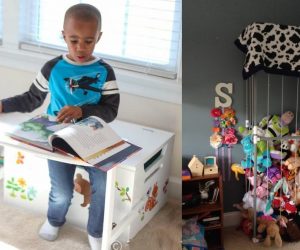
People might need help with daily activities like bathing, housekeeping, laundry, transportation, hygiene, dressing, or even long-term care as they age. Assisted living centers provide hands-on help and concentrate on each person’s experiences, personal preferences, and unique health requirements. They’re safe and secure and let your loved one remain socially active and engaged.
In assisted living, seniors can live independently while accessing services and amenities that make life safer and easier. While assisted living can be rewarding, deciding that your loved one requires more support than you can offer can be challenging. Here are four signs it’s time for assisted living.
1. Deteriorating Mental Health
Statistics indicate that at least one in four seniors experiences a mental disorder. Anxiety disorders, depression, eating disorders, suicidal ideation, dementia, medication abuse, and post-traumatic disorder are mental health conditions a loved one may experience. Older adults with Alzheimer’s disease, strokes, chronic pain, reduced mobility and autonomy, loneliness, social isolation, and others are at a higher risk of experiencing mental health issues.
A senior with chronic or acute mental health problems might exhibit warning signs like self-care decline, withdrawal from social activities, memory loss, hoarding, unusual sleeping patterns, and more, necessitating advanced care. Assisted living facilities such as Review Retirement Community, Riverview can offer the memory care your loved ones needs.
2. Challenges Providing Sufficient Long-Term Care
Caring for an aging parent or loved one can be challenging. Once you assume the caregiver‘s responsibility, you’re responsible for your aging loved one’s welfare. While your parent may wish to maintain a specific level of authority and independence, their health condition might be entirely dependent on you and incapable of safely making specific decisions alone. Caring for seniors can also result in financial strain, challenges managing time, and stress.
Caregiving will leave you with limited free time. You may feel isolated from other family members and friends. These issues might make it challenging to offer adequate care in the long term. In such a case, assisted living would be a smart move. The professionals providing care at Koelsch independent living know that aging comes with unique emotional and physical needs that require a compassionate approach. They create an environment where residents feel respected, supported, and engaged in community activities, easing the transition and helping them maintain a fulfilling lifestyle.
3. Social Isolation And Loneliness
Social isolation and loneliness in seniors are associated with severe health risks like dementia, heart disease, stroke, anxiety, depression, suicide, or even death. An aging loved one might find it hard to attend social gatherings, participate in activities they once enjoyed, or see friends. Assisted living is an excellent way to help older adults stay engaged because it lets them meet like-minded residents so they can make friends and interact.
In these communities, there is a low chance of social isolation because they organize events like movie nights, workout sessions, get-togethers, and more to ensure residents interact with one another and are happy.
4. Regular Falls
Falls are common in older adults and may be caused by reduced coordination and strength, chronic diseases, vision impairment, surgical effects like joint replacement, behavioral factors, medication, and environmental hazards. While you can modify your home to make it more accessible, you may not complete all the necessary adjustments.
Assisted living facilities provide round-the-clock support and personalized care plans to address each resident’s wants and needs. They also have accessible showers, stairs, and hallways, reducing the risk of falling. Should a loved one fall when in assisted living, the available 24-7 care ascertains that they access immediate medical attention and help them through recovery.
Endnote
Aging seniors require much care and help with daily activities, which family members may have challenges providing. If your loved one exhibits these signs, it could be time to consider assisted living.



